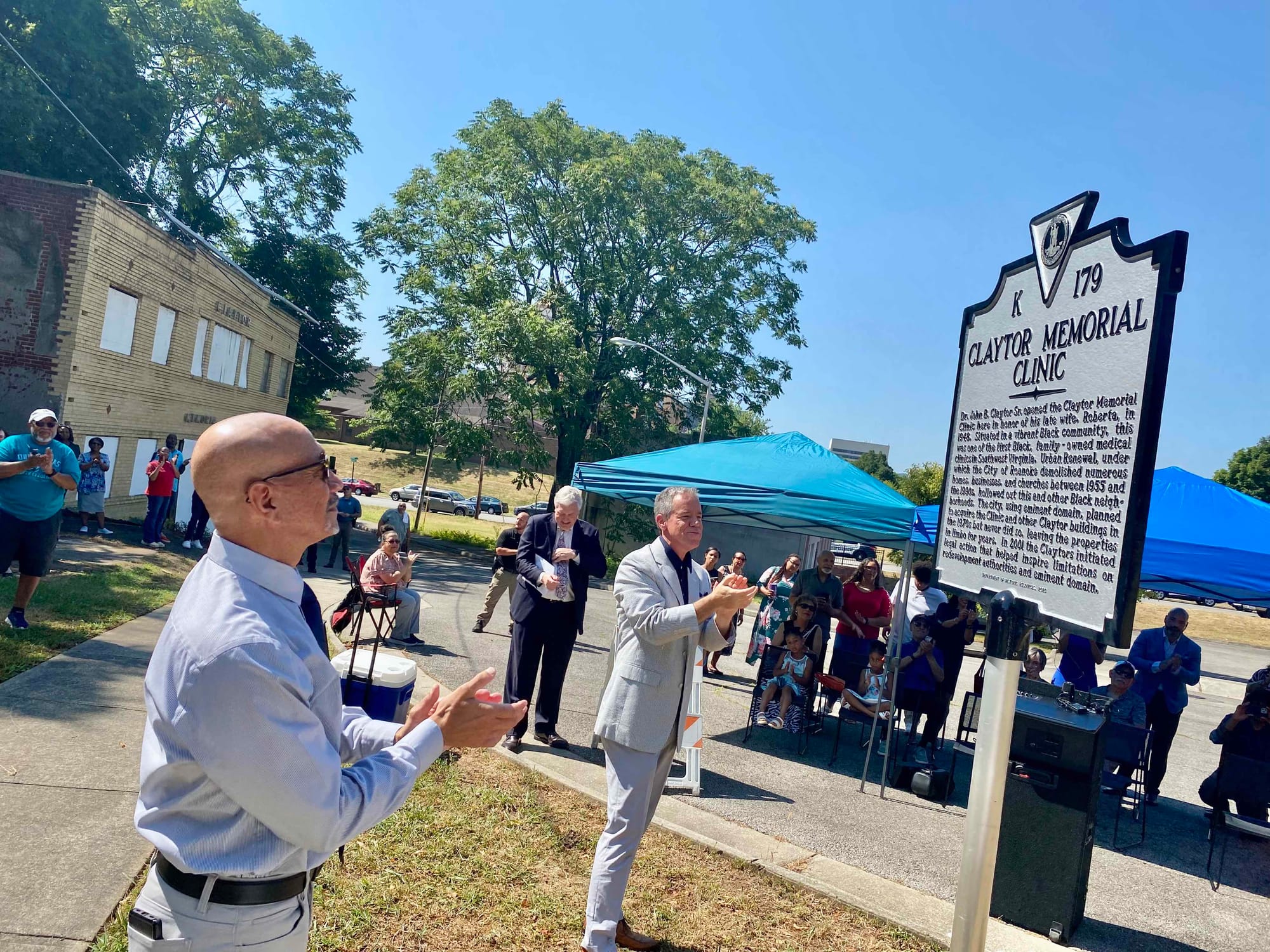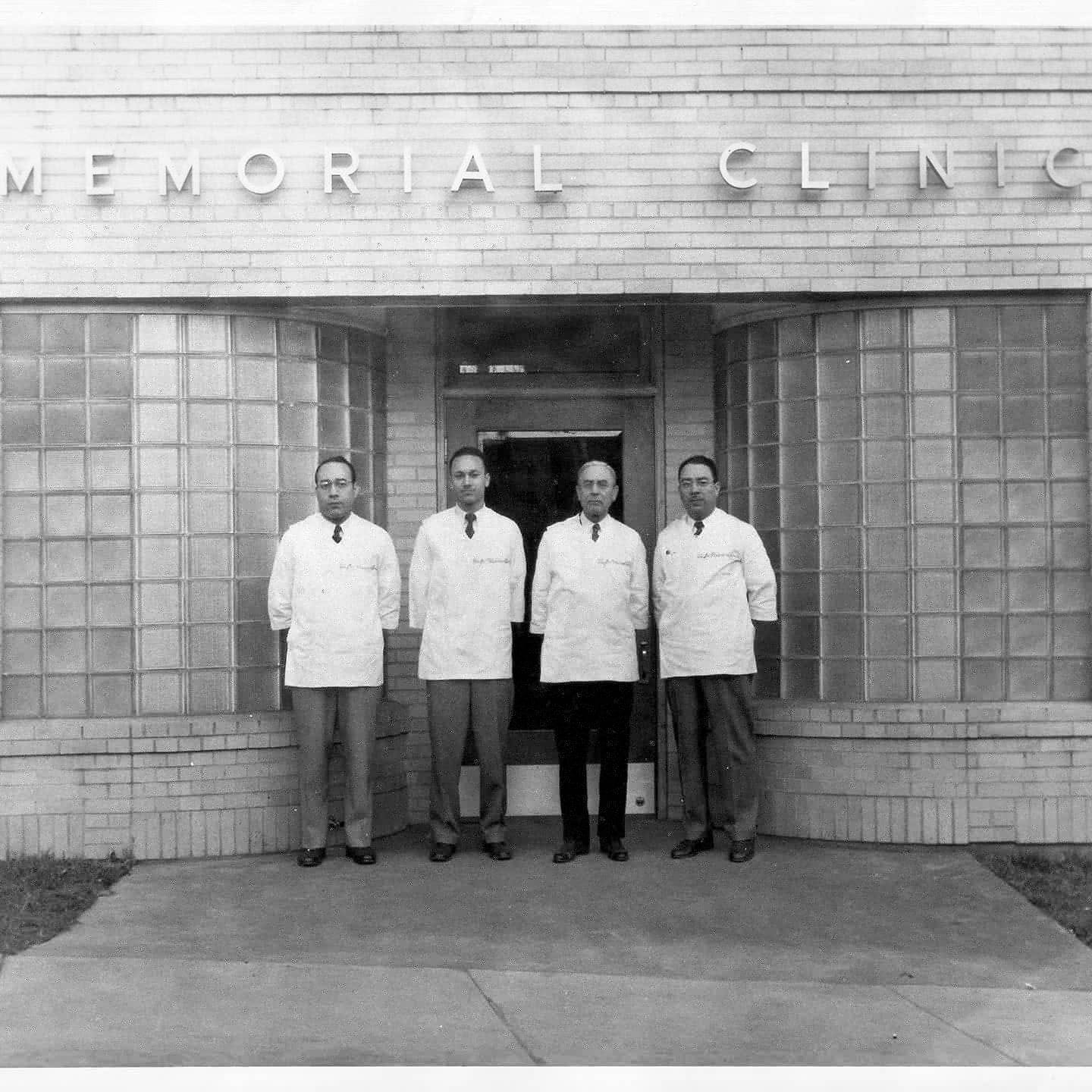Claytor Clinic Gains State Historical Marker, But Future of Gainsboro Property Unclear
Gainsboro's historic Claytor Clinic has gained statewide recognition, but breakdowns over city negotiations leave the property's fate uncertain.

Gainsboro’s historic Claytor Clinic building is now recognized as such by the state.
But the fate of the boarded-up, yellow-brick building, shuttered since the 1990s, remains at risk.
Members of the Claytor family and community leaders on Friday unveiled a state historical marker — Roanoke’s 18th, according to an online state database — recognizing the site as “one of the first Black, family-owned medical clinics in Southwest Virginia.”
In October, in a closed-door meeting, Roanoke City Council rejected an eleventh-hour pitch from Claytor family members to restore the clinic with some of the city’s federal pandemic relief money; earlier negotiations the city had initiated to buy the Claytor property had broken down as part of the city’s intended effort to build a Gainsboro community hub focused on small business development and healthcare.
“The marker is not the only thing that needs to be done,” Jordan Bell, a Gainsboro advocate and historian, said at Friday’s ceremony. “It is on community leaders, city officials, and everyone in the city of Roanoke that after this marker is unveiled, that this building is restored.”
Dr. John B. Claytor Sr. opened the health clinic in 1948 on property that included a stately family home. Urban renewal, starting in the 1950s, destroyed numerous Black homes, businesses and churches in Northeast Roanoke and Gainsboro, leaving the neighborhood unmoored and the clinic in limbo.
The historical plaque notes that the city threatened in the 1970s to take the property through eminent domain but never did so. In 2001, the Claytors successfully sued over those actions, leading to compensation and a change in state law that limited eminent domain powers.

Former mayor and historian Nelson Harris was a driving force behind securing the historical marker, alongside Dr. Conrad Claytor, a grandson of the clinic founders.
“When I think of my grandparents, I think of the enormous obstacles they faced trying to carve out a living while raising a family and a segregated Roanoke and under the Jim Crow laws of the South,” Claytor told a crowd that included dozens of family members. “They always placed front and center their faith in God, their love of family and their never-ending perseverance.”
He said later that the family has been exploring how to preserve the building.
“We have had offers to purchase the property but the new owners would not commit to the restoration of the clinic building, thus it was a ‘no go’ for the family,” Claytor said in a text.
Vice Mayor Joe Cobb said he continues to hope the dilapidated building can be revitalized.
“What remains is a call to repair and to reclaim the visionary legacy of the Claytor family and Gainsboro residents to work together to create something new and restorative,” Cobb told the crowd. “Reparative work is both healing work and transforming work.”
As part of nearly $65 million the city received under the American Rescue Plan Act, Roanoke in 2021 earmarked $5 million for the historically Black Gainsboro neighborhood.
But an initial plan to restore the clinic and refurbish the next door Lawson Building fell through. Instead of a community hub focused on business development and healthcare, the city will steer the $5 million toward making Gainsboro Road more pedestrian and bicycle friendly, creating outdoor gathering spaces and providing grants for owner-occupied housing repairs.
Last fall, Conrad Claytor made a pitch to city leaders to buy the land. (Dr. Walter Claytor, who earlier negotiated with city officials, died in January.)
In October, then-city manager Bob Cowell told Conrad Claytor in an email that Council members remained interested in seeing the property brought back to life.
“At this point, however, the Council is not interested in acquiring the property but rather remains interested in supporting a private-led redevelopment effort,” Cowell had written.

